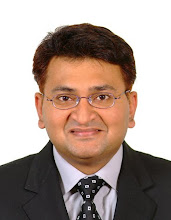In my opinion there are two fundamental reasons why management consulting (MC) firms exist:
- Experience and expertise that an MC has in solving business problems: An MC has expertise in solving business problems which a business organisation often lacks. An MC can benefit from previous similar experiences and apply the learning to similar problems in fresh situations. e.g. a bank may not know how to enter a new market but an MC would most likely have assisted tens of other companies in a similar task. Thus, an MC offers value in terms of experience and expertise to that bank.
- Presence of incentive incompatibility in business organizations: Every business decision faces business uncertainty and hence has some risk. Now an executive, who is just an agent of the shareholders (principals), will not take a risky decision unless he himself gets a return that satisfies his risk-return trade-off. In organisations such as investment banks this incentive incompatibility is low as the executives' bonuses are directly linked to the bank's profits. Hence, such IBs don't usually hire MCs unless it is for CDD (which is due to the reason explained in point 1). Now, MCs take a part of the risk and the return from the executive. Now, the executive's risk-return trade-off is satisfied and the MC's as well.

